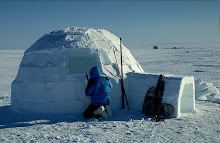
We've had an interesting discussion about paradigms in literature and literary analysis. The way in which we interpret literature has changed from that of an authority dictating meaning to us, to a variety of meanings, public interpretation and personal interpretation.
And when Charles sits on his desk, breaking the student paradigm of constraint behind a sturcture, he has interpretive epiphanies....coincidence?
(I hear you: is she making this all up?)
For your consideration.....
As we all know,things change. Or as our man Yeats said;
"Things fall apart, the centre cannot hold
Mere anarchy is loosed upon the world
The blood-dimmed tide is loosed, and everywhere
The ceremony of innocence is drowned;
The best lack all conviction, while the worst
Are full of passionate intensity.
Surely some revelation is at hand;
Surely the Second Coming is at hand. "
Was Yeats talking of paradigms shifting in Ireland? In the world?
Speaking of paradigms....this is where the term originated: (from wikipedia & noelweidbrocht.com)
Paradigm shift, sometimes known as extraordinary science or revolutionary science, is the term first used by Thomas Kuhn in his influential 1962 book The Structure of Scientific Revolutions to describe a change in basic assumptions within the ruling theory of science. It is in contrast to his idea of normal science.
It has since become widely applied to many other realms of human experience as well even though Kuhn himself restricted the use of the term to the hard sciences. According to Kuhn, "A paradigm is what members of a scientific community, and they alone, share.” (The Essential Tension, 1997). Unlike a normal scientist, Kuhn held, “a student in the humanities has constantly before him a number of competing and incommensurable solutions to these problems, solutions that he must ultimately examine for himself.” (The Structure of Scientific Revolutions).
A scientist, however, once a paradigm shift is complete, is not allowed the luxury, for example, of positing the possibility that miasma causes the flu or that ether carries light in the same way that a critic in the Humanities can choose to adopt a 19th century theory of poetics, for instance, or select Marxism as an explanation of economic behavior. Thus, paradigms, in the sense that Kuhn used them, do not exist in Humanities or social sciences. Nonetheless, the term has been adopted since the 1960s and applied in non-scientific contexts.
So as you return your tray table to it's locked and upright position, think of any paradigms that may have shifted in Kafka's Metamorphosis, and as we read Hemingway, look for evidence of paradgims that may or may not have shifted during travel...


6 comments:
OMG!!!! this deconstruction of Hemingway's "The Killers" is killer! So far I have written 6 pages (double spaced naturally). Is that an adequate length, Ms. Byrne?
6 pages is a good start, Vanessa.Hope everything is cited MLA style.
May I point out that there should not be a possesive apostrophe in the word "its," near the end of your post? I think I'll do it anyway: there should not be a possesive apostrophe in the word "its," near the end of your post.
That will be all.
Also, ten pages is an absurd length to expect us to write about a short story of equal length. We are not all Venessa, you know, writing Jane Eyre 2.
Vanessa, that is overkill. Mine only came out to about five (2x spacing).
Dang. I'm stuck at about 4 and a half pages... Hmmm... Either I'm concise or I'm just not good at this... What should we discuss besides the few things you mentioned in class? Oh, and nice catch Matt.
Matt, I am forever in your debt as now I will not have to call teh Grammar Police. Thank you for the Citizen's Arrest.
Post a Comment